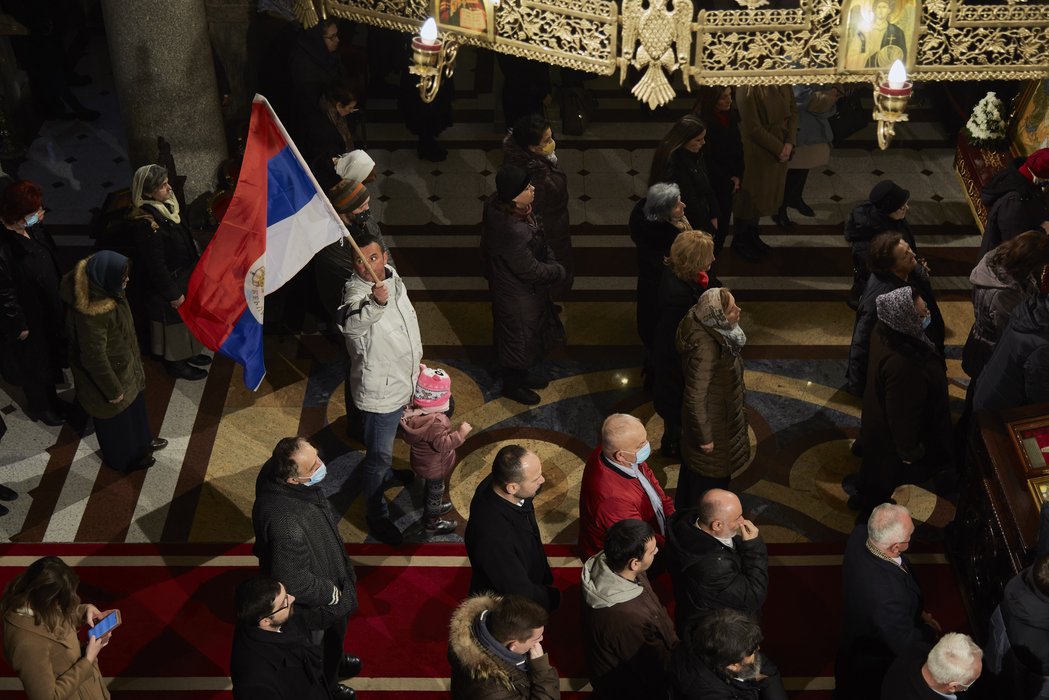
Association
The Balkan Civil Society Development Network joined an Open Letter by CSOs from Bosnia and Herzegovina, which expresses concerns over the political situation in the country and calls for the active involvement of civil society in the political and social decision-making processes.
According to the “Illicit financial flows in Bosnia and Herzegovina, Montenegro and Serbia” report, published by Global Initiative Against Transnational Organised Crime, a part of public money is allocated to BIH NGOs and CSOs based on political favouritism. In analysing the case of Canton Sarajevo, it is reported that “ ‘non-public’ annual grants handed out without a public consultation or competition are often given to war veteran organisations and ecology-based organisations, all of whom are supportive of the ruling party and ready to speak out in favour of or opposition to specific policies”.
Peaceful Assembly
On 9th January 2022, celebrations of the “Day of Republika Srpska”, which has already been ruled illegal twice by Bosnia’s Constitutional Court, turned violent. Incidents were registered in several cities where thousands of Bosnian Serbs took to the streets singing nationalist songs and glorifying wartime military leaders such as Ratko Mladic, who was convicted by the ICC for crimes of genocide.
Labour rights protests
- Members of eight unions protested in front of the Sarajevo Canton Government building, asking for an agreement which would set the basis for calculating salaries at 400 BAM (c.ca 200€) and to make changes in the annual Canton budget.
- Workers of Bosnian-Herzegovinian Radio Television (BHRT) protested at Radio Television House in Sarajevo over the non-payment of salaries caused by debt issues between BHRT and the Radio Television of the Republika Srpska entity (RTRS). The Steering Committee of the BH Journalists’ Association stated its support for the protests.
- Bosnian miners who had halted their work in support of colleagues protesting against work violations and pay regulations stopped their protest after nine days following an agreement with the government and state-owned Elektroprivreda BiH (EPBiH) power utility on wages and pensions.
According to the Pink Report 2021, which reports on the state of Human Rights of LGBTI Persons in Bosnia and Herzegovina, in 2020 restrictive measures introduced as a consequence of the COVID-19 pandemic were used as a pretext to further restrict freedom of peaceful assembly of LGBTQI+ people and to exclude civil society from the process of improving legislation in this area.
Expression
Reports highlight concerns on press freedom
- According to the Western Balkans Journalists’ Safety Index 2020 report on Bosnia and Herzegovina, the number of defamation lawsuits filed by politicians and other officials against the media has remained high and journalists perceive them as a form of pressure against their work. Moreover, there is a lack of effective protection mechanisms for journalists being attacked, which disproportionately affects female journalists who often have to rely on the support of NGOs. Journalism in BIH remains a precarious job, with no permanent employment contracts, salaries below average and labour rights respected only “on paper”.
- According to the Human Rights Watch World Report 2022, in 2021 journalists in Bosnia and Herzegovina had to face pressure from public officials, verbal and physical threats while reporting and increasing gender-based violence against women. It mentioned the case of the complaints made by journalists working in the Lipa migrant camp against police officers who allegedly made use of threats, denied journalists access to the camp and forced them to delete recorded material.
Attacks on journalists
- Jasmin Mulahusic, known in BIH for his controversial posts on social media and who was detained earlier this year for allegedly inciting national and religious hatred, attacked several journalists and media on Facebook. The incident has been condemned by the Steering Committee of the BIH Journalists’ Association.
- Journalist Jelena Denda – Borjan from the Direkt portal had to give a statement at the Trebinje Police Station because of the report filed against her and another person by a member of the SNSD party in Bileća, Ljubo Vukovic, one of the executive directors of the Trebišnjica Hydroelectric Power Plant. This happened just one month after the journalist had reported Vukovic to the police for harassing her by text messages.
The US administration imposed sanctions on Alternativna Televizija (ATV), a TV station affiliated with the Bosnian Serb leader Milorad Dodik. The US treasury accused Dodik of exerting personal control over the TV station and its agenda. ATV journalists stated that the US does not have any jurisdiction over local media and they received support from the President of the Assembly of the Association of Journalists of the Republika Srpska, Branimir Đuričić, who claimed that there was no evidence that could justify the US administration’s sanctions.
The factsheet “National Regulatory And Self-Regulatory Framework Against Hate Speech And Disinformation” was published within the framework of regional project ‘RESILIENCE: Civil society action to reaffirm media freedom and counter disinformation and hateful propaganda in the Western Balkans and Turkey’. In the publication, it is argued that prohibition of hate speech in Bosnia and Herzegovina is not fully regulated or aligned with international standards. This is further proven by the rarity of processes and judgements related to hate speech.